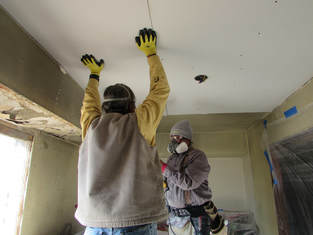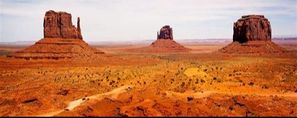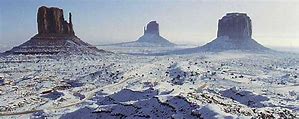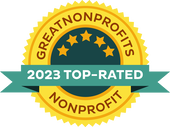 It has been another busy year for our home weatherization program. We are now working in 10 of the 12 Hopi villages - last year we were primarily working in just one – and are now accepting applications from Navajos. For 2018 we have already substantially weatherized 38 homes and recently received a $100,000 extension to our contract that will help more families get ready for the coming winter and keep our local 2-person crew employed. One the great benefits of home weatherization is the impact it has on improving the comfort of the indoor living environment, which includes making homes cooler in the summer and warmer in the winter. A well weatherized home requires less heating and cooling, which in the case of many Hopi and Navajo households means a reduction in the use of coal burning during winter months. Less coal burning can result in cleaner air quality, both indoor and outdoor, which can reduce wide-spread respiratory ailments. Additionally, more efficient homes also have lower energy costs, which are often a crippling financial burden for many low-income households. In fact, low-income U.S. households spend 7.2 % of their income on utilities bills, which is more than two times that of median income households (3.5%) and three time greater than higher income households (2.3%). This results in families having to make difficult decisions, such as sacrificing food quality and medical care over keeping their home warm or lights on. The U.S. Department of Energy reports that after weatherization, families have homes that are “more livable, resulting in fewer missed days of work and decreased out-of-pocket medical expenses by an average of $514 (per year).” Additionally, at each house we visit, we spend time educating family members not only about ways they can further reduce their energy bills, but also about the connection between their health and their home environment-covering a variety of topics from mold and lead paint to pest management. Special thanks to APS for funding this home weatherization program as well as funding our DIY Home Weatherization and Women’s DIY Home Repair workshops that we will be delivering this fall. Comments are closed.
|
Archives
June 2023
Categories
All
|
|
Change your mind at any time by clicking 'unsubscribe' in any email you receive or by contacting us at [email protected]. We will treat your information with respect. For more information about our privacy practices please see our privacy policy. By clicking above, you agree that we may process your information in accordance with these terms.
In compliance with all GDPR requirements- you can request any data you’ve shared with Red Feather to be permanently deleted from our records by contacting us at [email protected]. |
WORKING WITH HOPI AND DINÉ
COMMUNITIES FOR HEALTHIER AND SAFER HOMES.
LAND ACKNOWLEDGEMENT: The Red Feather program office sits in an area that is sacred to over 14 local tribes, including the Diné, Hopi, Havasupai, Hualapai, Zuni, Pueblo, and Kaibab-Paiute peoples. Some of these nations are represented among the Red Feather staff, and some not. We humbly acknowledge this area’s Indigenous nations, original stewards and Native descendants who will forever know this place as home. We share a responsibility to recognize and acknowledge the people, cultures, and histories that make up our community. *Adapted from the Flagstaff City Council land acknowledgement developed by the Indigenous Commission

If you have a disability that limits your ability to access our facilities, please contact us so we can arrange for an alternative meeting location. See our ADA access plan here.
This institution is an equal opportunity provider. |




 RSS Feed
RSS Feed

